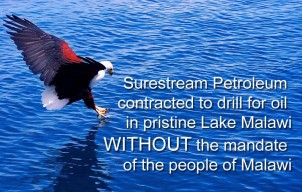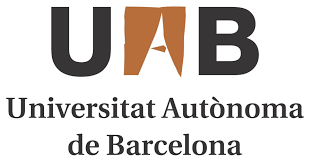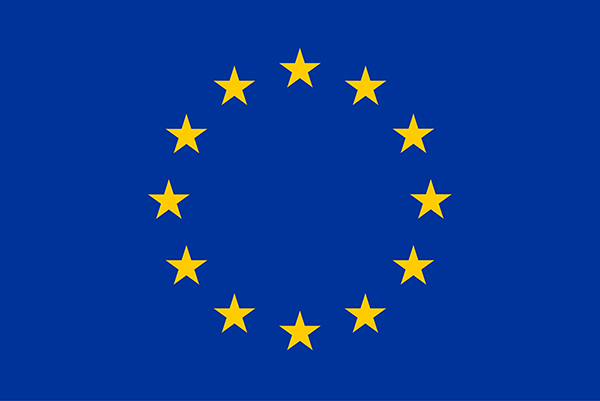
By Lusayo Banda – Citizens for Justice.
When oil is found, democracy or environment become burdensome afterthoughts. This rule of thumb looks set to go up for Malawi. The recent shift of focus from agriculture to large-scale extraction has been done without the required institutional, policy and legislative frameworks that would ensure equitable, socially just and environmentally sound exploration and extraction of various natural resources. The discovery of oil on Lake Malawi alone has triggered much excitement among the government and various stakeholders consider oil production in Malawi as a lasting solution to the erratic supply of fuel at domestic level.
The government has already awarded exploration licenses to a British based company, Surestream Petroleum and a South African company, SacOil Holdings Limited, to start drilling oil on Lake Malawi. The lake has been divided into six oil blocks; two blocks have been given to Surestream Petroleum, 1 block to SacOil Holdings Limited and the other 3 blocks are up for grabs. However, the process leading to awarding such contracts in Malawi lacks transparency and is not in line with best practice. The current Petroleum Act (1983) vests all powers to control petroleum exploration and production in Malawi in the hands of the president.
The discovery of oil on the lake – which borders Malawi, Tanzania and Mozambique – has brought back border disputes between Malawi and Tanzania. Tanzania now claims ownership of half of the northern part of the lake, arguing that the border is supposed to run through the middle of the lake. Tanzania argues that most international laws support sharing common bodies of water by bordering nations. Malawi still goes by the 1890 treaty between the Germans and the British, which puts the border at the shores of the lake. Despite Malawi refuting the claim, Tanzania’s position still remains and the matter is yet to be adjudicated by former heads of state. It has the potential to go to the International Court of Justice (ICJ). The dispute resurfaced in 2011 following the discovery of oil and gas on Lake Malawi, and it deepened last year (2012) when Tanzania published a new map indicating half of the lake is Tanzania’s.
The general public and Civil Society Organizations also have mixed reactions over oil production on Lake Malawi. They fear oil exploration and drilling would have catastrophic impacts on eco-tourism and the fisheries industry on the lake, which has over 2, 000 different fish species. Without a proper and effective regulatory and enforcement system, local communities are bound to experience negative environmental, social and economic impacts and various other threats to their human rights thus posing enormous challenges for Malawi. Over two million people depend on Lake Malawi for their source of income, food, transportation and water.
The institutional framework for oil production in Malawi is grossly inadequate. At present, the only certain revenue from oil operations is the royalty and license payment. The revenue framework for upstream operations activities is neither coherent nor progressive, the legislative framework does not address issues of community development to facilitate distribution of revenue from the national level to the local level, there are glaring discrepancies between the Petroleum Exploration and Production Act (PEPA) and the Environmental Management Act (EMA) regarding environmental impact assessments, and both PEPA and EMA do not require the carrying out of a Social Impact Assessment as part of an Environmental Impact Assessment.
The Environmental Impact Assessment is also known to suffer from a number of weaknesses; public participation including the participation of local communities is not an integral part of the EIA process in Malawi. Oil production has the potential to cause severe environmental degradation. It also has significant impacts on health and wellbeing of employees and communities living in surrounding areas constituting of risks and opportunities. Some of the risks include environmental threat to health resulting from air, water and soil pollution. Oil spillages go a long way and they are hard to maintain.
Even if Malawi would want to drill the oil, the country has no effective petroleum revenue framework and there are fears that the resource curse wont just be about the potential conflicts with the neighbors but also about abuse and mis-use of revenue from oil. As Citizens for justice, we strongly oppose any efforts to destabilize the lake’s eco-systems. We like to remind all that the Lake Malawi National park is a world heritage site with over 500 fish species.





To find out more about Lake Malawi, the oil, and the dispute between Tanzania and Malawi, visit our site: http://mininginmalawi.com/category/lake-malawi-dispute/
Thanks for the link, Mining in Malawi. We appreciate valuable resources being added to our writings! Good luck with your work.
Thanks! It would be great to get a new piece up here since the ESIA has now been conducted for Surestream Petroleum’s seismic surveying of the lake bed. The public hearings are being held this and next week.
Pingback: είδαμε… | Οικοτριβές
It’s a curse, rather than a blessing that Oil has been found in Lake Malawi. If the Malawian government makes efforts to mine the oil it may lead to catastrophic consequences. It could destroy the incredible beauty of Lake Malawi.
Ecological disaster, and the lake shore communities would not be compensated adequately.